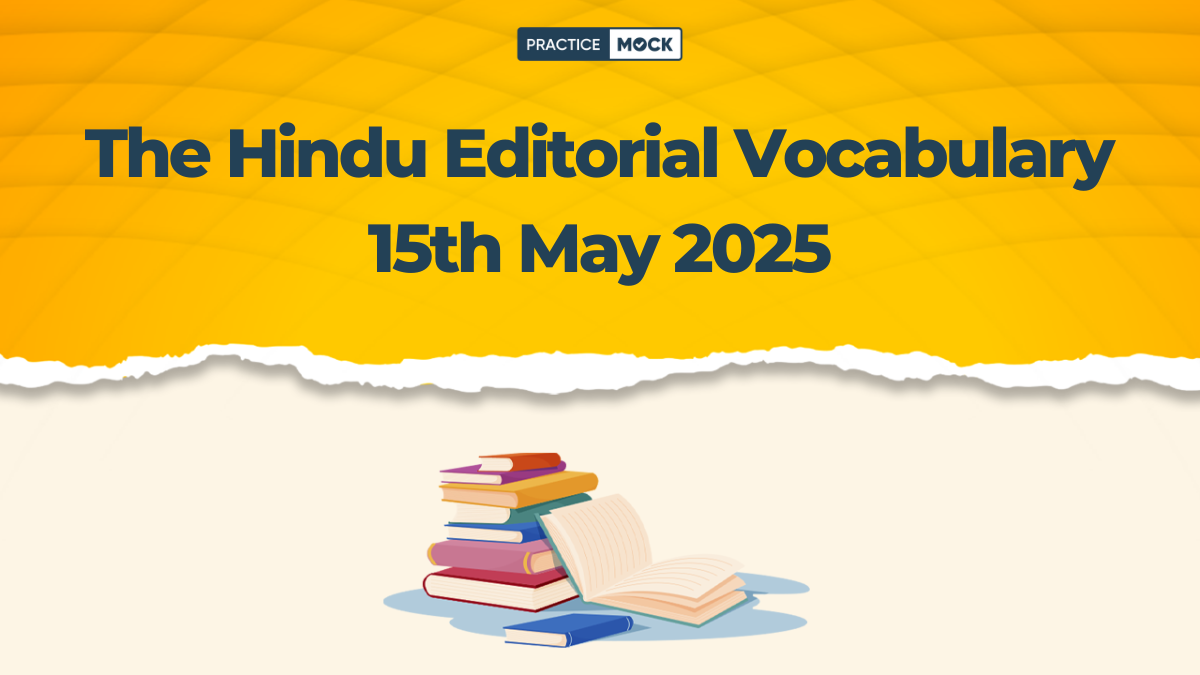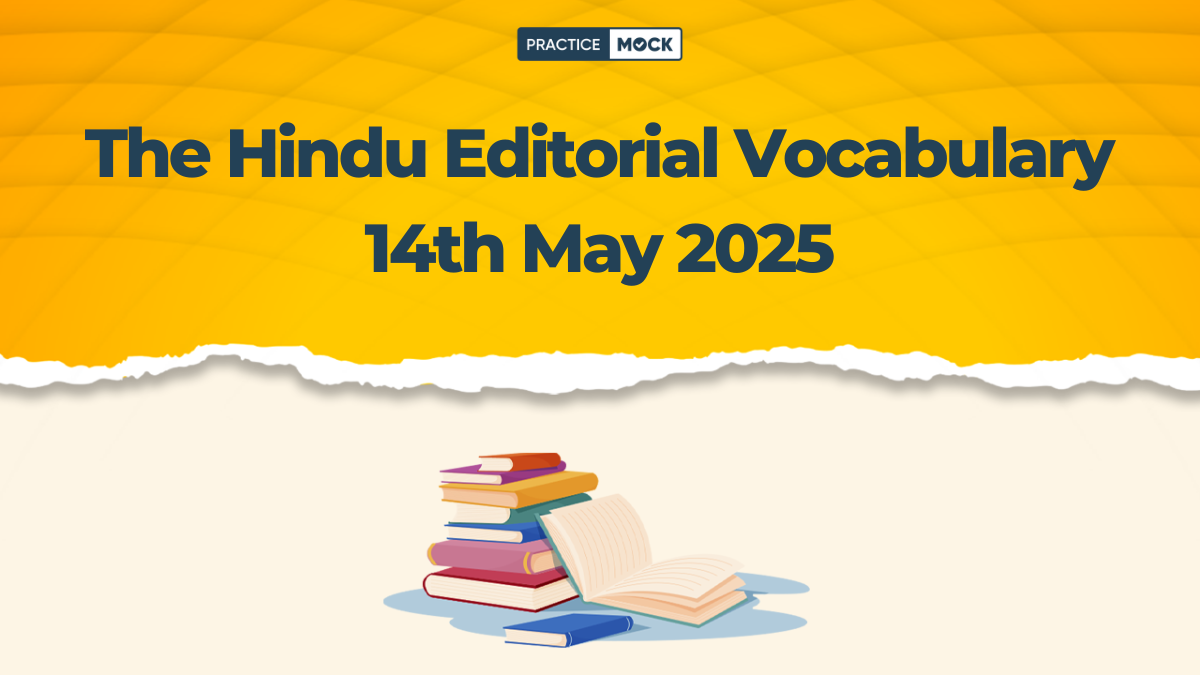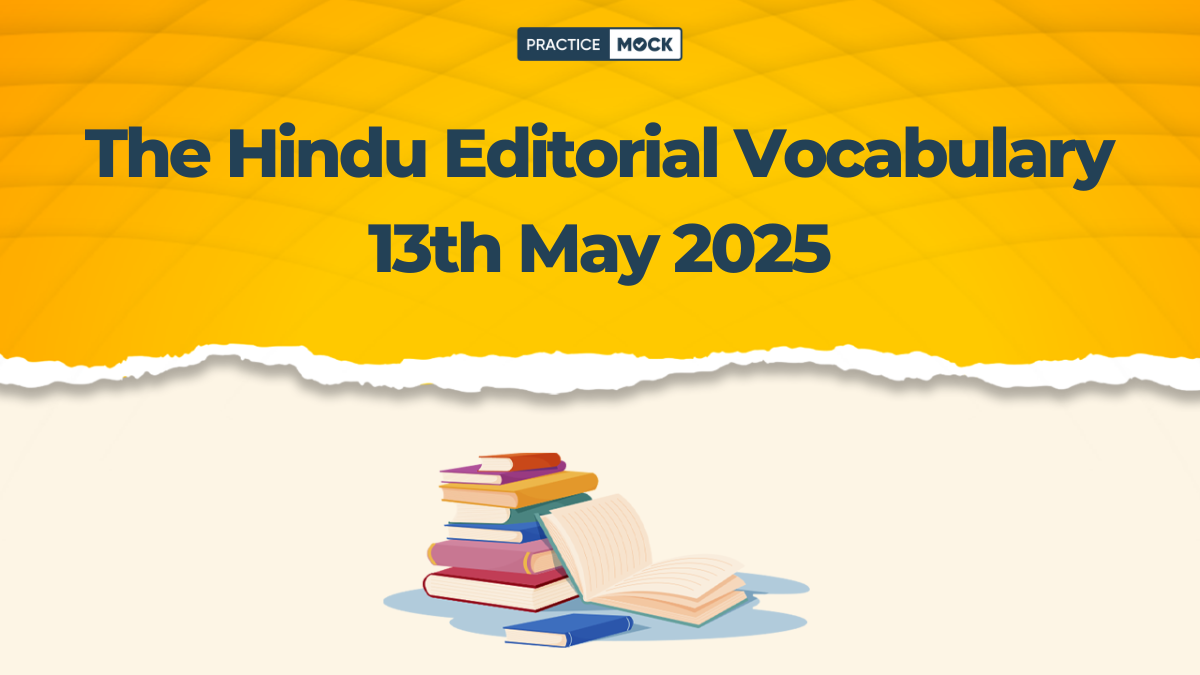The Hindu Editorial Vocabulary– January 30, 2024; Day 541


| Difficult Word/ Phrase | Contextual Sense |
| Infidelity | The action or state of being unfaithful |
| Affliction | Something that makes you suffer |
| Somersaults | To turn over completely, or to make something do this |
| Alliance | An agreement to work with someone else to try to achieve the same thing |
| Disloyalty | The fact of not supporting someone that you should support |
| Distant | Used to describe someone who does not show much emotion and is not friendly |
| Turnaround | A positive change; improvement |
| Proclaiming | To announce something publicly or officially, especially something positive |
| Insecure | Not safe or not protected |
| Rapprochement | An agreement reached by opposing groups or people |
| Considerable | Large or of noticeable importance |
| Consolidation | The process of becoming or being made stronger and more certain |
| Defanged | Rendered harmless or ineffectual. |
| Potency | Strength, influence, or effectiveness |
| Beneficiary | A person or group who receives money or other benefits as a result of something else |
| Realignment | The act of putting something, or the fact of being put, into a new or correct position, or an instance of this |
| Besmirched | To say bad things about someone to influence other people’s opinion of them |
Changing partners: On Bihar Chief Minister Nitish Kumar and his recurrent political somersaults
Nitish Kumar’s unedifying volte-faces are an insult to voters of Bihar
Ideological infidelity (the action or state of being unfaithful) is not a rare affliction (something that makes you suffer) among career politicians. Power, wealth and the many vices that often motivate political actors are not unfamiliar to Indian voters. Even by these low standards, Bihar Chief Minister Nitish Kumar appears to be plumbing new depths with his recurrent somersaults (to turn over completely, or to make something do this). He has changed partners multiple times, with little more reasoning than satisfying his desire for power. Mr. Kumar’s about-turn in 2017 betrayed the mandate of 2015 and in 2022, he betrayed the mandate of 2020. In 2020, Mr. Kumar’s Janata Dal (United) had won the election in alliance (an agreement to work with someone else to try to achieve the same thing) with the Bharatiya Janata Party (BJP), but two years later he broke from it to form an alliance with the Rashtriya Janata Dal (RJD) and the Congress. That was a clear insult of the mandate. He has now made yet another turn, this time returning to the BJP-led National Democratic Alliance. Within the day, he resigned as Chief Minister, claimed the post again with new partners, and was sworn-in again as Chief Minister. Only a few weeks ago, Mr. Kumar was fashioning himself as the leader of the anti-BJP Opposition alliance. It might be true that politics makes for strange bedfellows, but Mr. Kumar has turned his acts of disloyalty (the fact of not supporting someone that you should support) into a familiar script. Meanwhile, his claim of being a champion of good governance appears so distant (used to describe someone who does not show much emotion and is not friendly) in the past, and completely unfamiliar.
Until the moment of the turnaround (a positive change; improvement), the BJP was loudly proclaiming (to announce something publicly or officially, especially something positive) that it would never again align with Mr. Kumar and the JD(U). There is no explanation from either side on their sudden change of heart. Mr. Kumar had tried to corner the BJP on the question of caste, in alliance with the RJD and the Congress. The socio-economic survey of castes in Bihar that his previous government ordered did not turn out to be a watershed moment as Mr. Kumar perhaps hoped. At the same time, the BJP felt insecure (not safe or not protected) enough to look for a rapprochement (an agreement reached by opposing groups or people) with the JD(U), which commands considerable (large or of noticeable importance) following among non-Yadav Other Backward Classes in Bihar. The opening of the Ram temple in Ayodhya marked a new phase of Hindu consolidation (the process of becoming or being made stronger and more certain) behind the BJP, but the party is always watching out for erosion triggered by caste mobilisation. By redrafting Mr. Kumar, the BJP has defanged (rendered harmless or ineffectual). the limited potency (strength, influence, or effectiveness) that was left in his social justice politics. The BJP is the biggest beneficiary (a person or group who receives money or other benefits as a result of something else) of the realignment (the act of putting something, or the fact of being put, into a new or correct position, or an instance of this) in Bihar, while the biggest loser might be Mr. Kumar himself. His political base is being raided, and his legacy stands besmirched (to say bad things about someone to influence other people’s opinion of them) But, he is still the Chief Minister, and nothing else seems to matter to him. It is not exactly future perfect, but it is happily present continuous.
Unlock the power of words, one step further! Download the Lists of Word-Meanings of Previous Months here.
Recent Posts
FCI Assistant Grade 3 Syllabus 2025, Check Exam Pattern
Knowing FCI Assistant Grade 3 Syllabus & Exam Pattern is important to study for Phase…
SBI CBO GA & Banking Awareness Previous Year Paper
In this article we are providing the SBI CBO General Awareness & Banking Awareness Previous…
IDBI JAM Previous Year Question Paper, Download Grade O Paper PDF with Solution
Here we are providing the IDBI JAM Previous year question paper. Candidates can download free…
Janakalyan Bank Clerk Notification Out, Check All Details
Jankalyan Sahakari Bank Clerk Notification Out, Check all Details important from an examination point of…
The Hindu Editorial Vocabulary 15th May 2025
Here we are providing the Hindu Editorial Vocabulary 15th May 2025. Candidates can check words…
IBPS Calendar 2025-26, Get Bank Exam Calendar PDF Download Lin
The IBPS Calendar 2025 has been released on their official website, Candidates can check the…


